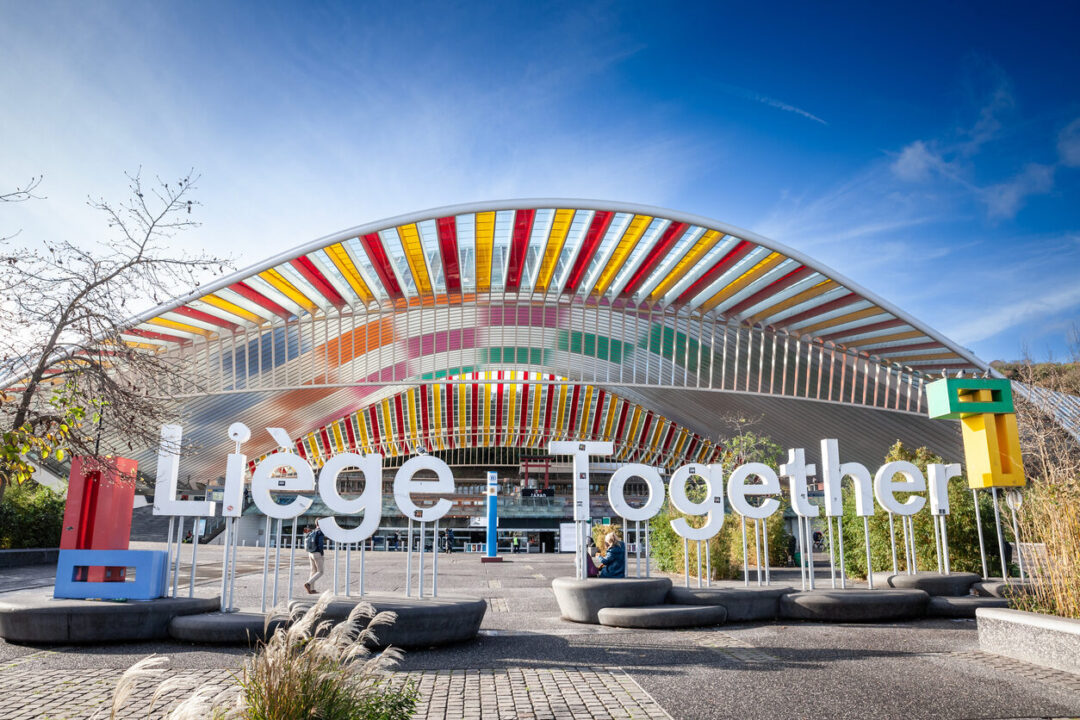 Paris, France, September 2019 – European societies are at risk of increasing polarisation: in the political systems of many countries, extremist and populist currents are gaining ground, reaching far into the political centre and occupying governmental functions. In public debate, a number of topics – for example how to manage migration flows, how to deal with climate change, or how to tackle drug use in public spaces – spark increasingly controversial discussions, with sometimes very little middle ground between opposing opinions. Moreover, contemporary platforms for political debate such as social media or talk show formats on the internet and television seem to rely on and foster sharp opposition and even verbal attacks and insults instead of dialogue and the balancing of opinions. They give way to forms of thinking that operate in categories of us-and-them, leaving little room for the complexity, interconnectedness and interdependence that are so central to our social life in general and to democratic deliberation and cooperation more particularly.
Paris, France, September 2019 – European societies are at risk of increasing polarisation: in the political systems of many countries, extremist and populist currents are gaining ground, reaching far into the political centre and occupying governmental functions. In public debate, a number of topics – for example how to manage migration flows, how to deal with climate change, or how to tackle drug use in public spaces – spark increasingly controversial discussions, with sometimes very little middle ground between opposing opinions. Moreover, contemporary platforms for political debate such as social media or talk show formats on the internet and television seem to rely on and foster sharp opposition and even verbal attacks and insults instead of dialogue and the balancing of opinions. They give way to forms of thinking that operate in categories of us-and-them, leaving little room for the complexity, interconnectedness and interdependence that are so central to our social life in general and to democratic deliberation and cooperation more particularly.
> What is polarisation?
The term ‘polarisation’ is increasingly used to describe such social, political and psychological tendencies. Closely intertwined with other phenomena such as cleavage and conflict, inequality and discrimination, radicalisation and extremism, polarisation can fuel violence and social disintegration, thus threatening social cohesion and security. In fact, we can understand polarisation and social cohesion as poles at the opposite ends of a continuum: while social cohesion is qualified as the presence of interpersonal trust and dense social relations, the ability to participate in open political processes and trust in and legitimacy of institutions, polarisation can be understood as the absence of such indicators.
Polarisation is characterised by the closing off of social identities, and this configuration of selves in opposition to each other results in marginalisation and discrimination; it dehumanises the supposedly antagonist other with fake data, facts and arguments even in the absence of a real or homogenous contrary group or opposition. While social identities based on definitions of “us” and “them” are normal features of social life and communication as they provide identity and security, rigidly closed social identities often prove to be toxic: they not only provide an answer to the question of “Who am I?”, but they can also foster a retreat from wider society and imply the devaluation and dehumanisation of others.
> A toolbox to assess polarisation locally
Many local governments throughout Europe lack a deep and detailed knowledge of the processes of polarisation, a complex, multifaceted and rapidly growing phenomenon. Research on polarisation and policy strategies to address it are developing at an equally high pace, yet remain at an early stage. The resulting lack of clarity on definitions and concepts as well as the prevalence, dynamics, impacts and spatial and temporal distribution of such phenomena within a municipality’s or region’s territory is problematic because such information would ensure adequate allocation of resources as well as the development of effective prevention measures. Increasing knowledge and evidence on the topic of polarisation is thus of paramount importance.
In order to support local authorities at assessing and monitoring polarisation processes at the local level, the BRIDGE project has developed a methodological toolbox containing three sections, each one presenting a set of tools and explaining how they can be used to produce evidence on local polarisation processes.
Getting Started: demographics, social structures and civic participation
Polarisation can arise from a group’s perception that they are, or experience being, excluded or marginalised, their voices not heard or recognised. This can lead to aggression or victimisation or both, along with disempowerment. Assessment of the local situation thus requires a systematic review of relevant demographics and structures to measure communal resilience against polarisation. The information gathered should feed into subsequent prevention schemes.
Consequently, this section assembles a wide range of tools that allow local practitioners to analyse demographics, social structures and mechanisms of civic participation and to identify strengths and weaknesses which may fuel polarisation processes.
Taking stock: having explored your context, assess the presence of polarisation
Polarisation exerts a widening circle of influence, spanning neighbourhoods, regions and countries. In most cases, the processes of polarisation on these different levels intertwine and mingle. In the age of Facebook, Twitter and Instagram, national media reports can fuel polarisation in local neighbourhoods, while local incidents of violence can trigger polarisation far beyond the realm of the event itself. Even global contexts can contribute to the polarisation experienced locally. It is therefore important to assess both the specific features and broader contexts of the local situation.
This section of the toolbox contains a wide range of tools, notably questionnaires, to analyse us-and-them thinking, zero-sum mindsets, individual and community resilience, outgroup empathy, interpersonal reactivity and other factors that are key drivers of polarisation. Each questionnaire is accompanied by explanations on how it can be used.
Setting the scene: preparing to address polarisation at local level
Preventing polarisation is no isolated task/challenge and does not need to start from scratch. It is part and parcel of overall communal policies and builds on existing resources, actors and structures, taking into account experiences from various fields. Crime prevention includes general policy goals such as creating equal living conditions and fostering social cohesion and relates to policies of integration, economic development, anti-discrimination, as well as youth work and educational programmes.
The tools presented in this section support local practitioners at mapping their local partnership and identifying resources as well as needs – an assessment which will allow them to develop effective measures to prevent and mitigate further polarisation.
> The BRIDGE project’s pioneering diagnostics
In the framework of Efus’ BRIDGE project, 13 partner local authorities are making use of these methodologies to assess polarisation in their territories. Such audits are currently being conducted in Brussels (BE), the Departmental council of Val d’Oise (FR), Düsseldorf (DE), in Catalonia (Government of Catalonia, ES), Genk (BE), Igoumenitsa (GR), Leuven (BE), Reggio Emilia (IT), the Region of Umbria (IT), Rotterdam (NL), Terrassa (ES), Stuttgart (DE), and Vaulx-en-Velin (FR).
Efus has set up a panel of five accomplished experts who support local practitioners, bringing in a wide range of academic perspectives and backgrounds:
Dr Eolene Boyd-MacMillan (Cambridge University, IC Thinking Research Group, UK) is a psychologist whose action-research has focused on developing, implementing and testing new interventions to address social polarisation, prevent violent extremisms and reduce destructive inter-group conflicts in a range of contexts.
Prof Markus Pausch (University of Applied Sciences of Salzburg, Austria) is a political scientist with particular expertise in inclusive democracy, citizenship education, democratic innovation and participation.
Tim Chapman (University of Ulster, Northern Ireland, UK) is a lecturer on restorative justice and has extensive academic and practical experience in restorative justice, intercultural conflict and probation.
Dr Götz Nordbruch (UFUQ.de, Germany) focuses on youth cultures in Islam, racism and Islamism, the use of media by young Muslims and migrants, as well as the prevention of radicalisation in education.
Adrian Jofre-Bosch (Royal Institute Elcano, Spain) is an independent counsellor specialised in mediation, negotiation and conflict resolution.
Audit visits are being conducted until November 2019 when the project consortium will meet in Barcelona for its second coordination meeting.
For more information on the BRIDGE project, see https://efus.eu/en/topics/activity/16652/





